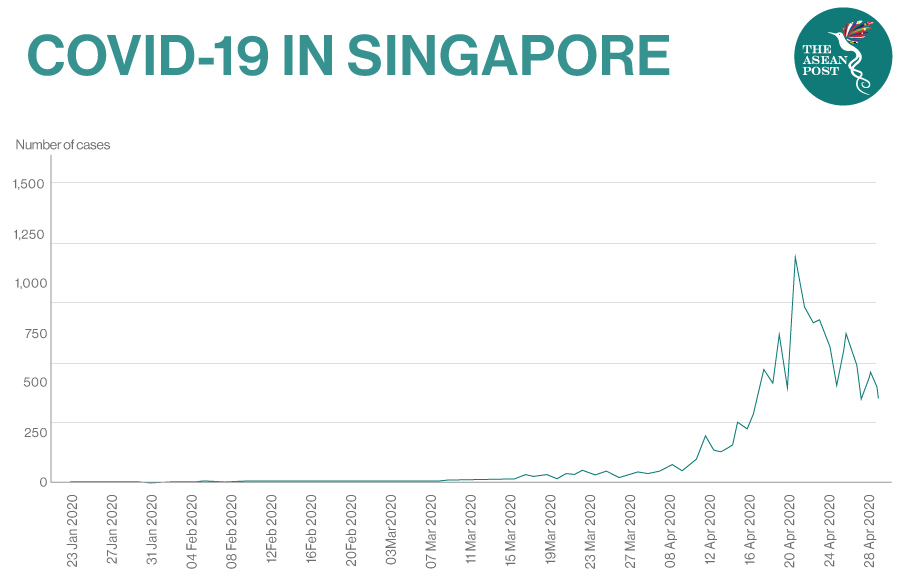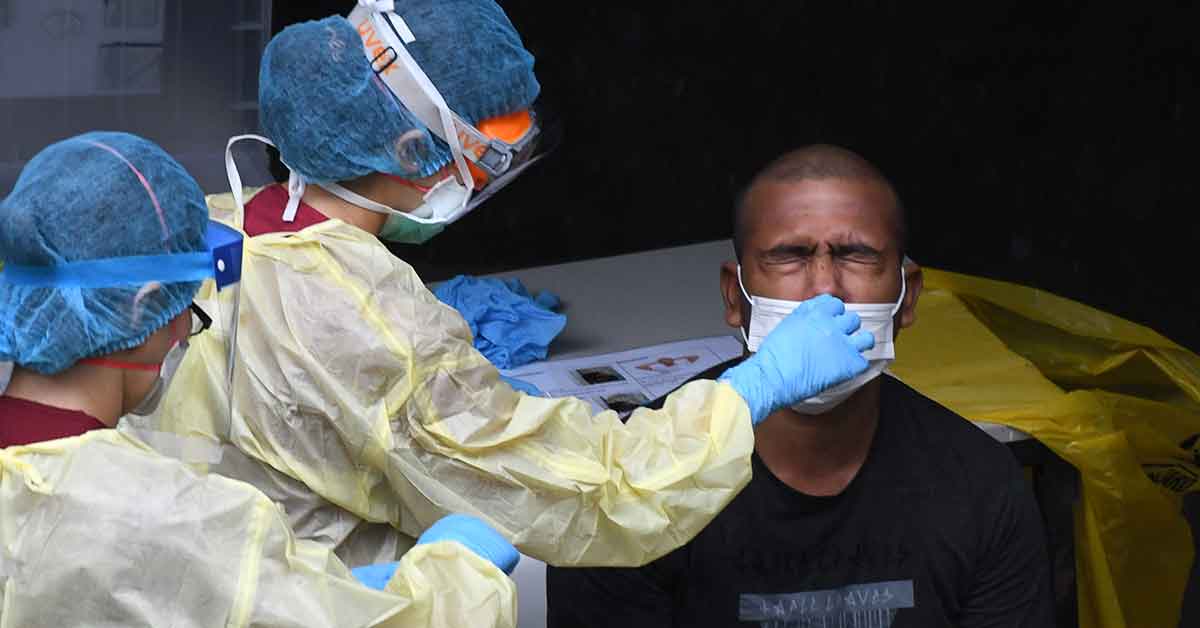Singapore has been praised for its gold standard approach in tackling the COVID-19 pandemic. Citizens are given free masks and hand sanitizers courtesy of the state, according to local media reports. Nonetheless, the island’s policies have been focused on Singaporeans only. As of 30 April, more than 16,000 people have been infected in the island state, with more than 80 percent of them migrant workers.
Although the fatality rate in the country is considered relatively low compared to ASEAN member states Indonesia and the Philippines, Singapore’s COVID-19 cases have spiked in recent weeks. Other than that, the number of recovered patients has also gained attention among observers. Singapore currently has less than a 10 percent recovery rate – making it the lowest in Southeast Asia.

Just last month, a special online summit was held among ASEAN leaders to discuss strategies that could be taken at a regional level to tackle the deadly virus outbreak. The COVID-19 coronavirus which emerged late last year has infected over three million people and killed more than 200,000 worldwide. Governments have implemented drastic measures to contain the virus such as travel curbs and citywide lockdowns. Currently, an estimated 4.5 billion people – or half of humanity – is under lockdown. However, some countries have reportedly started to ease on movement restrictions as cases start to plunge in recent days.
The outcome of the special online summit was a joint declaration that included a plan to establish a regional COVID-19 response fund to deal with the scarcity of medical supplies caused by the pandemic. The leaders also committed "to keeping ASEAN's markets open for trade and investment... with a view to ensuring food security".
While the widely applauded plan is crucial to fighting the pandemic and improving the livelihoods of millions of citizens across ASEAN amid the crisis, it was reported that some organisations criticised the summit as it failed to discuss the plight and wellbeing of refugees and migrants.
“They are part of a group that is vulnerable to COVID-19. It is unfortunate that ASEAN has neglected this,” said Wahyu Susilo from Migrant CARE, a non-governmental organisation (NGO) aimed at safeguarding the welfare of migrant workers, to the media.
Singapore is home to an estimated 1.4 million migrant workers from all parts of Asia.
It was reported that there are some 200,000 migrant workers living in 43 dorms in the city-state. As infections rise in these cramped dormitories, thousands of migrant workers are being moved out of this living space. Officials told the media that the workers have now been moved to other sites such as military barracks, vacant apartment blocks and an exhibition site where the Singapore Airshow is held every year. Moreover, it was recently reported that some of them who have recovered from the illness will be temporarily housed on two SuperStar cruise ships from Genting Cruise Lines. National Development Minister of Singapore, Lawrence Wong told the media that authorities have an "extensive" plan to house recovered foreign migrant workers, involving new sites.
One of the main issues at these dormitories is the poor living conditions. Workers sleep on bunk beds, 12 to 20 people are crowded into a room, ventilated by small fans attached to the ceiling or walls, according to media reports. It was also reported that one filthy toilet is alleged to be shared by more than 80 people.
Mohan Dutta, a Professor at Massey University in New Zealand, who has interviewed 45 migrant workers in Singapore since the outbreak started said that the workers claim to not even have access to soap and adequate cleaning supplies at these dormitories.
"When the government of Singapore, governments all over the world, issued safe distancing advice, I think they overlooked the fact that safe distancing cannot be possible when construction workers and other blue-collar workers are housed 10 men, 20 men, in a room," said Alex Au, vice president of the Singaporean non-profit organisation, Transient Workers Count Too (TWC2).
"The failure, I think, to see clearly the risks and to take measures to mitigate the risks, left us with a very bad situation right now," he added.
Tommy Koh, a Singapore lawyer and former diplomat acknowledged the issue and posted a blunt comment regarding the problem on his Facebook account: “The way Singapore treats its foreign workers is not First World but Third World. The government has allowed their employers to transport them in flatbed trucks with no seats. They stay in overcrowded dormitories and are packed likes sardines with 12 persons to a room.”
However, Josephine Teo, Singapore’s Manpower Minister announced that the country would now adopt a few strategies in handling the recent surge of cases which include locking down dorms with known clusters of infections and isolating those who have tested positive and their close contacts.
Back in April, Prime Minister Lee Hsien Loong announced that the country of nearly six million people will continue its partial lockdown, also known locally as Circuit Breaker (CB) until 1 June in order to break the chain of infection.
Organisations advocating for migrant workers' rights such as Migrant CARE have urged authorities to help vulnerable communities hit hard by the pandemic. “We hope that the Government and authorities will take our plea into consideration in the spirit of humanitarianism. Let us help our fellow human beings in this time of need so that we can all get through this hardship together,” said Alex Ong from Migrant CARE.
Related articles:
